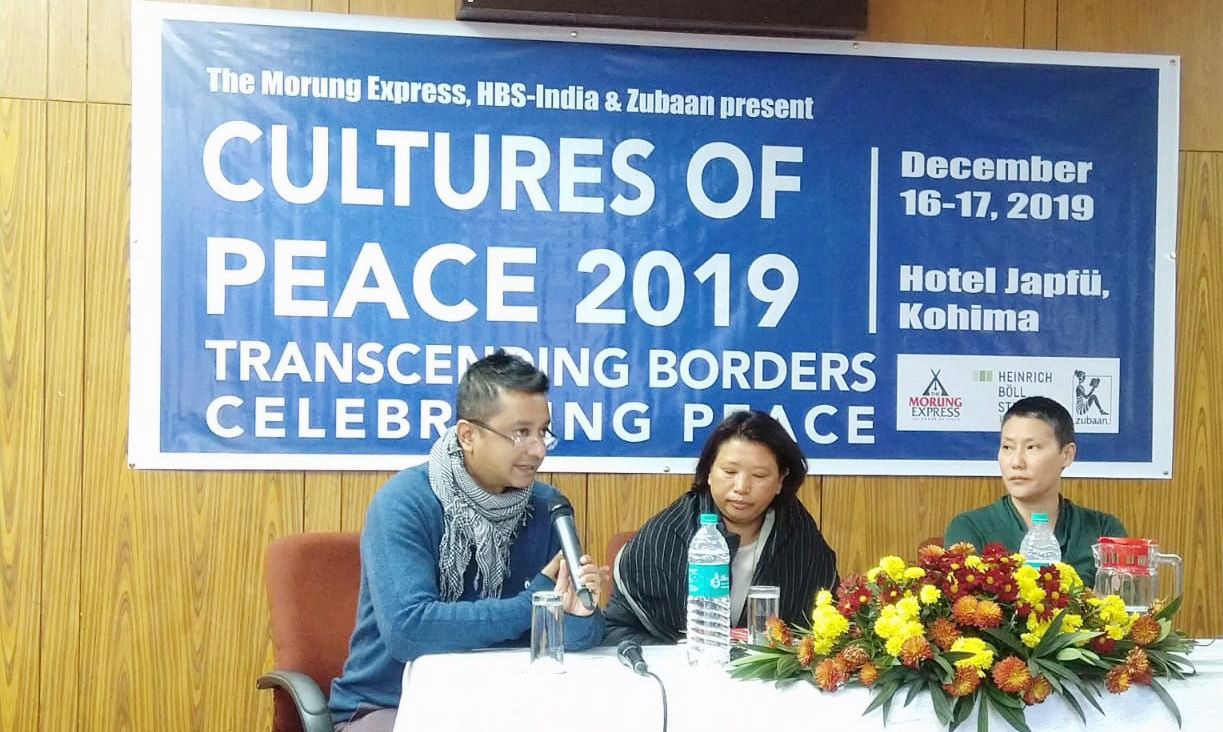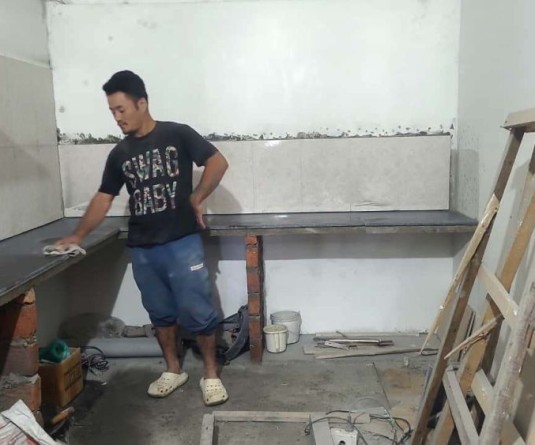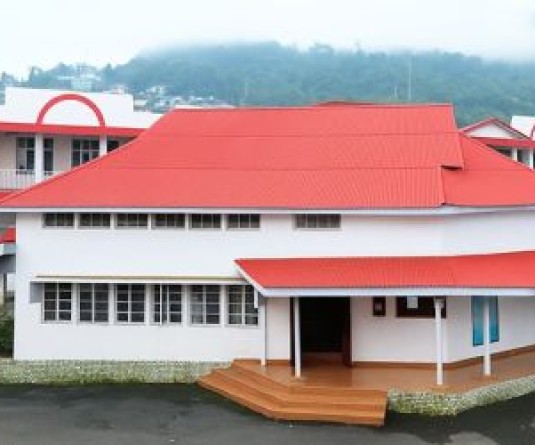(From left to right): Xonzoi Barbora, Seno Tsuhah and Dolly Kikon during the discourse on exploring a new ecology in the NE region on the second day of Cultures of Peace held at Hotel Japfü, Kohima on December 17. (Morung Photo)

Cultures of Peace 2019 concludes
Morung Express News
Kohima | December 17
"If you want to define a new ecology for the North East region we need to relook at our activities especially human induced activities whether we are able to reflect, and restore and evolve from our communities, and ourselves in a new way which will sustain our environment and the people of the region," said Seno Tsuhah on the second day of Cultures of Peace. The session discoursed on exploring a new ecology in the NE region with Seno Tsuhah and Dolly Kikon as the key speakers and Xonzoi Barbora as the moderator.
While the NE region which has lived through conflicts and political turmoil, is well known for its culture and biodiversity, Tsuhah reminded how these heritage revolves around the environment, culture, forest management, agriculture and farming practices. However in the last few decades, Tsuhah rued that the region and its natural resources are not the same anymore. "We see depletion of forests, we see natural calamities mainly because of depleting natural resources and also because the interconnectness between human and environment is losing its track. The connectedness between humans and nature which used to be maintained and practice earlier is no more in place now," said Tsuhah.
Food sovereignty as shared sovereignty
Advocating on food sovereignty as a shared sovereignty, Tsuhah shared her experiences from Chizami- one place she believed 'where so many people have come, transcended the borders to celebrate biodiversity'. "Food sovereignty is a shared sovereignty. We don't know who is Naga or a Meitei or Kuki when it comes to food," asserted Tsuhah.
At Chizami, knowledge on agricultural practices are shared, seeds are shared and saved with other communities and cultures, which ultimately leads to a shared solidarity.
"When we talk about of shared sovereignty, it's about people's control of their own land, and resources and what really matters to them- their decision and control is in their hands. It doesn't really work out with boundaries but it transcends borders," remarked Tsuhah. Recalling conversations with neighboring farmers, Tsuhah noted the need for support to revive and restore the fertility of our lands, and to further rethink and review the development and policies imposed and brought by our government which has led to environmental depletion and loss of livelihoods. Tsuhah further asserted the need to see the gap and equity issues in the region.
"Are we defending our territories in a way that we are restoring, regenerating our ecological principles or we ourselves are destroying it?" questioned Tsuhah urging for the need of more dialogue and discussion to create a new ecology for the NE, and creating a shared vision and sovereignty.
Militarisation and its impact on the region's natural resources
To create a new ecology in the region, Dolly Kikon laid out three crucial key points: Understanding the history of militarisation and its impact on the region's natural resources, making peace with nature and climate change. "If we have to think about ecology as the Eastern Himalayan region it has to do with our history of militarisation. We cannot not face this history of militarisation and actually look forward to the future. Without grasping the nature of violence and militarisation, the future we look forward is unlikely," stated Kikon.
Kikon viewed that 1997 - the era of ceasefire, created a 'demilitarized ecology'. "What 1997 did to us was it gave us the ceasefire era. It led to many more ceasefire across multiple states. Is there a way that we can begin to understand what demilitarized ecology look like," Kikon stated. Citing researches and case studies from other countries, Kikon pointed out how monocropping increased in demilitarized zones in other countries, drawing similar experiences in the present day NE region.
With the region being constantly seen and labelled as a 'potential', Kikon said, "The language of the new demilitarized ecological future became that of commodifying nature. Everything was about the market."
While exploring a new ecology in the region, Kikon examined on how the region and its people make sense of making peace with nature. For Kikon, an important part of making peace with nature is conservation of wildlife and the natural resources.
On the issue of climate change, Kikon noted how the change has impacted the indigenous people severely, while also expressing the need to understand the impact of climate change as a reality in our lives.
"From this region, the kind of shared sovereignty that we have also means that we need to come together to really think about a shared future with ecology and with other beings like animals," concluded Kikon.






